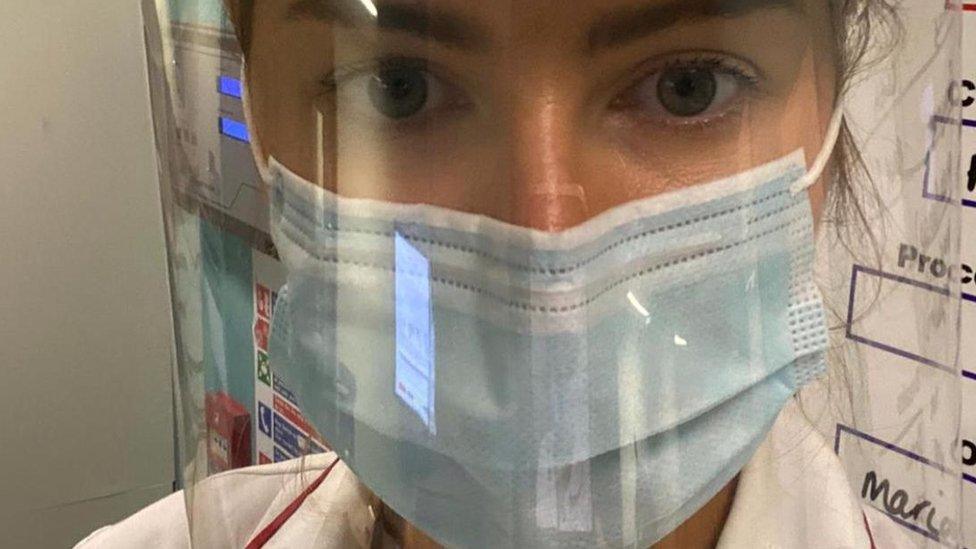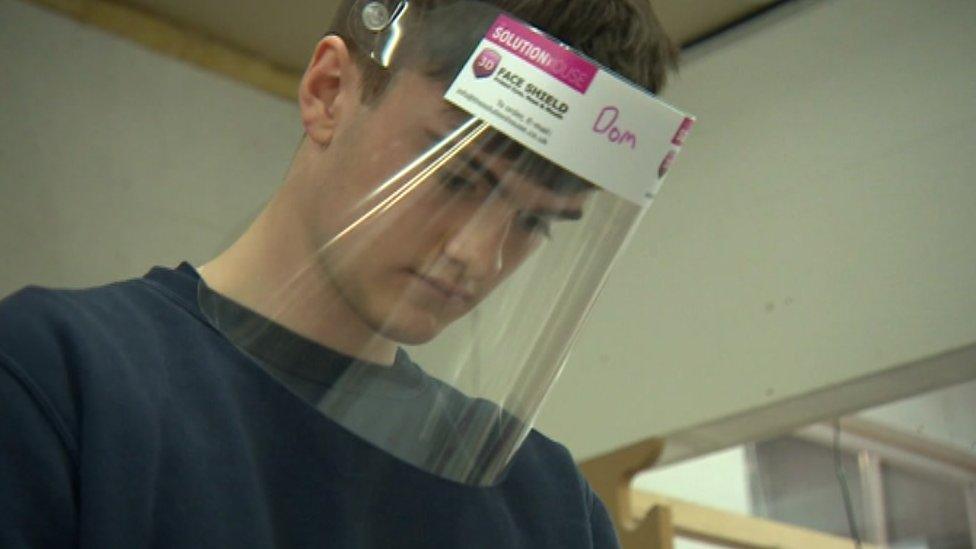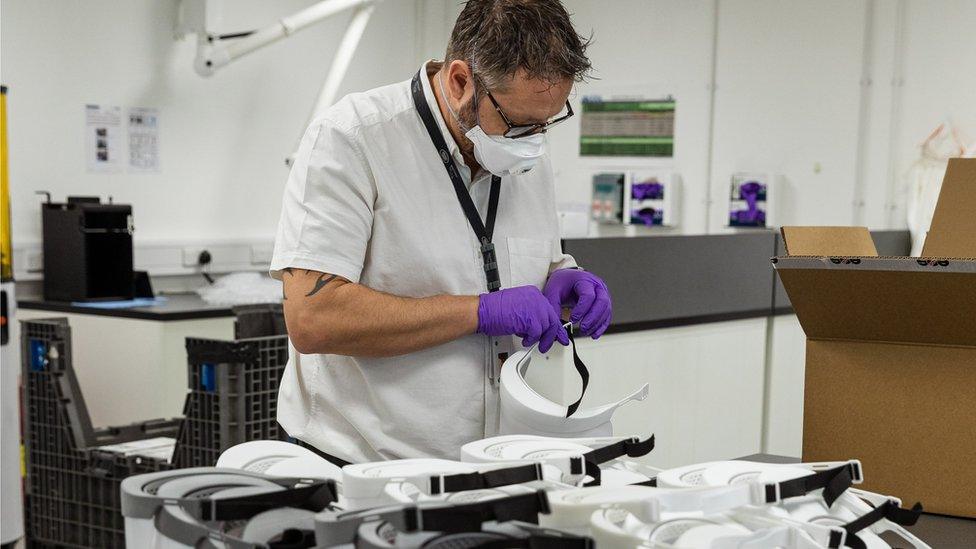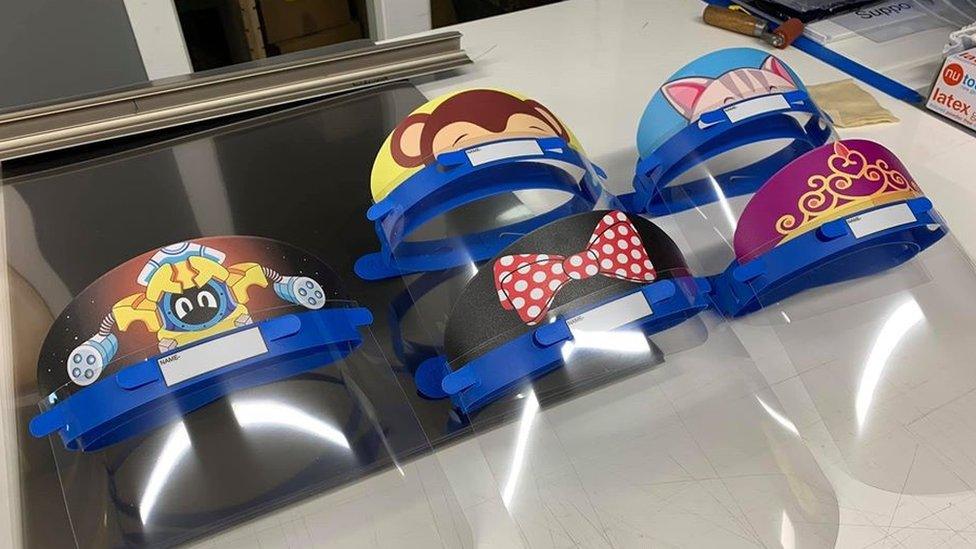Salford hospital team makes visors for front-line staff
- Published

Salford Royal staff wearing the protective visors
Almost 30,000 protective visors have been made by hospital staff for NHS colleagues on the front line.
A team from Salford Royal helped to design and make the visors that will be used in four hospitals in Greater Manchester.
They went into production following widespread concerns about a shortage of personal protective equipment (PPE).
“We plan to keep the supply going for as long as it is needed,” said Dr Glyn Smurthwaite.
'Fantastic volunteers'
The prototype was created by Dr Smurthwaite, a consultant anaesthetist, and Dr Stuart Watson, head of research and development in medical physics, who agreed the final design from home while in self-isolation.
“We knew that staff needed vital face protection to stay safe, so we decided we needed to act fast and began producing the visors,” said Dr Smurthwaite.
“We sourced foam, plastic, elastic and staples, and set up our own little production line at the hospital.
“The biggest issue has been getting the materials we need in the current climate but we have a fantastic team of volunteers helping us.”
Full face protection
The team set out to provide every member of clinical staff with a visor top protect them while caring for patients.
The visors are now being made by a team of 65 volunteers led by firefighter Dave Pike and supported by Tony Prescott from the Hamilton Davies Trust.
Volunteers completed the first batch of 500 visors before the project was scaled up and can now make 3,000 visors a day.
More than 28,000 visors have been produced and will be distributed to staff across the Northern Care Alliance NHS Group, which includes Salford Royal, Rochdale Infirmary, Royal Oldham and Fairfield hospitals.
“This is a brilliant innovation to help with our PPE,” said Dr Chris Booth, an intensive care consultant.
“The visors give us full face protection during the most hazardous procedures on ICU and ensure our staff are safe during these uncertain times.”

A SIMPLE GUIDE: How do I protect myself?
AVOIDING CONTACT: The rules on self-isolation and exercise
HOPE AND LOSS: Your coronavirus stories
LOOK-UP TOOL: Check cases in your area

- Published24 April 2020

- Published17 April 2020

- Published14 April 2020
